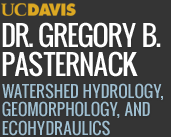Pro Poor Water Discussion
How to Supply the World’s Poor With Clean Drinking Water?
Background:
Among developing nations around the world, clean water supply and sanitary wastewater disposal are fundamental human requirements that are going unmet. According to the United Nations website on clean water and sanitation, “Water scarcity affects more than 40 per cent of the global population and is projected to rise. 1 in 4 health care facilities lacks basic water services. Each day, nearly 1,000 children die due to preventable water and sanitation-related diarrheal diseases.” Unfortunately, developing and distributing clean water as well as properly collecting, routing, treating, and disposing wastewater are very expensive. Complex socio-economic and political realities have stymied progress.
There are many case studies of attempts to solve this problem in developing nations. The movie this week showcased a fictionalized version of this problem as it played out in Bolivia. However, for class discussion this week, we will focus on the case of the capital city of Argentina, Buenos Ares.
The question arises, How shall civilization provide fresh water for its poor?
Different stakeholders have different perspectives on this issue.
Broad Assignment:
You will watch the movie Even The Rain to view a dramatized, fictional perspective on water development in Bolivia given the history of brutal Spanish colonization and its reverberations into the modern era. After watching the movie but before coming to your discussion section, everybody will read an article describing the history of the modern water crisis in Argentina, including an effort to promote more and better water infrastructure development via privatization. Further, after watching the movie but before coming to your discussion section, each person will be assigned to a stakeholder viewpoint and you will read a document presenting the viewpoint you are assigned to articulate. In class you will participate in discussion of the scenario.
Everybody reads:
- Zerah, M.-H. and des Eaux, L. 2001. The Buenos Aires Concession: The Private Sector Serving the Poor. Water and Sanitation Program-South Asia, New Delhi, India. https://www.wsp.org/sites/wsp.org/files/publications/sa_buenos.pdf
Stakeholder ID’s For This Assignment:
- Multinational Corporation
- Developing Nation Government
- Political-Economics Journalist
- Poor Citizen Of Developing Nation
Specific Readings by Stakeholder ID:
You are welcome to search the internet to find more resources in support of discussing the viewpoint you are assigned to represent.
1. Do an internet search on the term “neoliberalism” and read information about it, so you can advocate for it. Be prepared to advocate for privatization of water.
2. Read the July 24, 2019 Telesur news article, “Bolivian Opposition Will Privatize Gas Reserves, Minister Warns”. Do an internet search on the trade-offs between nationalization and privatization of developing nations’ infrastructures. Come to your own decision about the choices and be prepared to advocate for your viewpoint in discussion. Just remember, your government is poor, possibly even deep in debt, so you have to be realistic about what you can advocate for.
3. Read the May 23, 2009 Financial Times news article, “Argentina: The superpower that never was.” Review other information about the history of Argentina to understand why it is in the economic situation it is. Prepare your viewpoint over the development of water infrastructure in Argentina.
4. Read the December 16, 2011 Guardian news article, “Access to clean water in Argentina remains a work in progress, says report.” Do an internet search on the rights of poor citizens to water and other infrastructure needs.
Activity in Discussion Section:
- 7 minutes settling class down, deal with class issues, and TA intro to scenario.
- 7 minutes discussion with same all people with same viewpoint discussing how to make your main points
- 7 minutes with an opposing viewpoint, one-on-one
- 7 minutes with an opposing viewpoint, one-on-one.
- 7 minutes with an opposing viewpoint, one-on-one.
- 7 minutes with an opposing viewpoint, one-one-one
- 7 minutes whole-class discussion wrap up.


